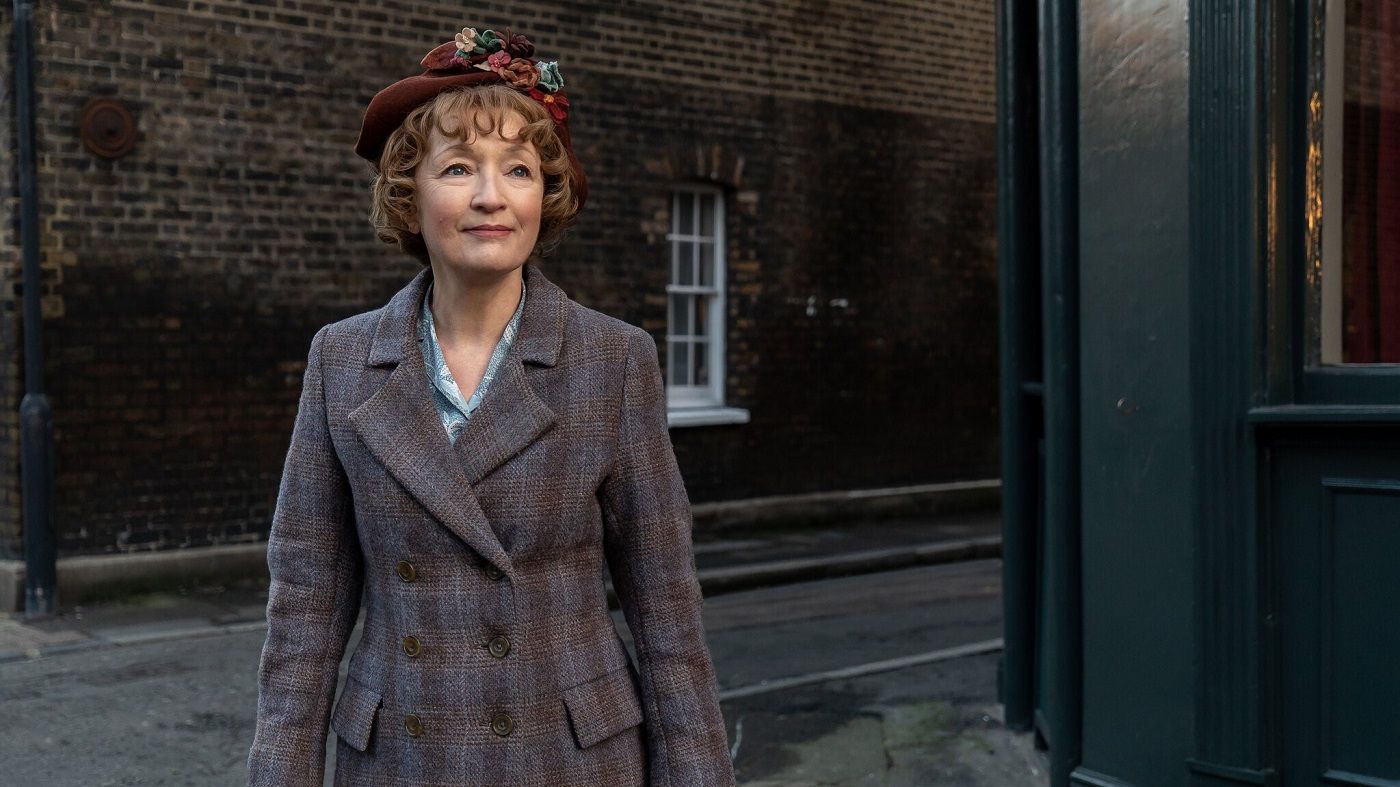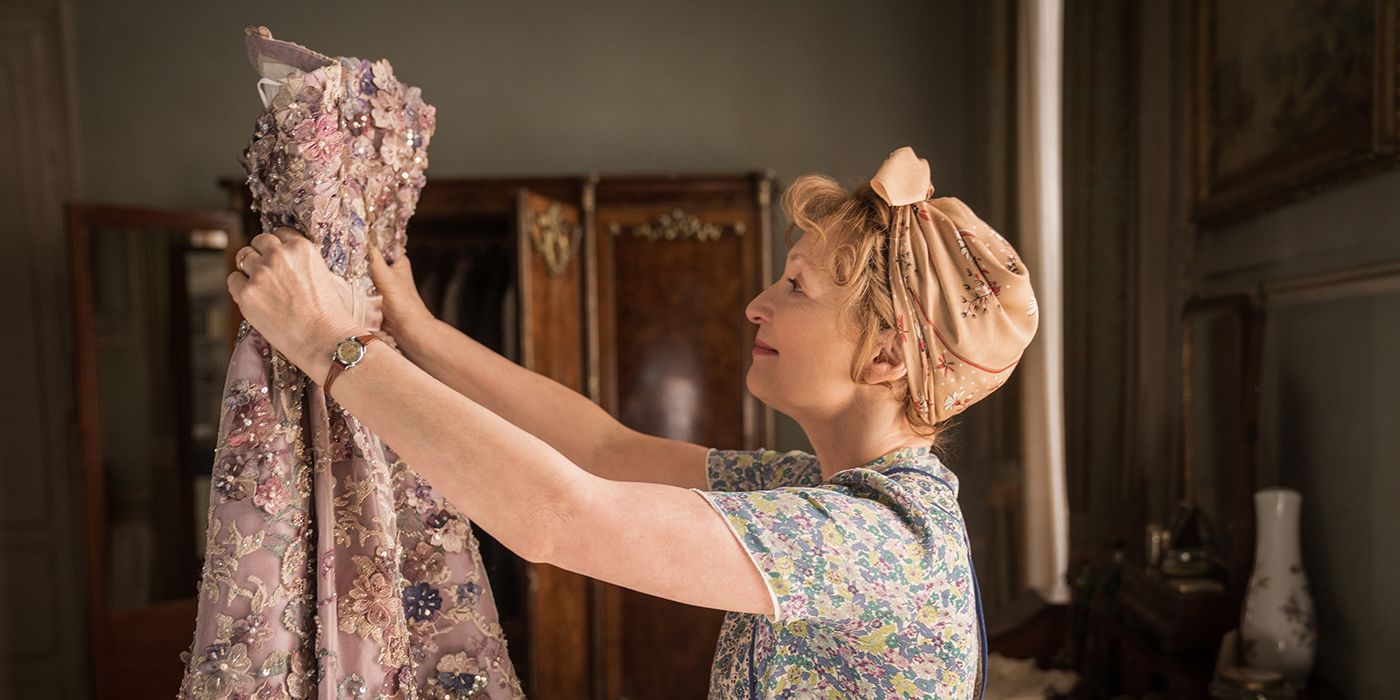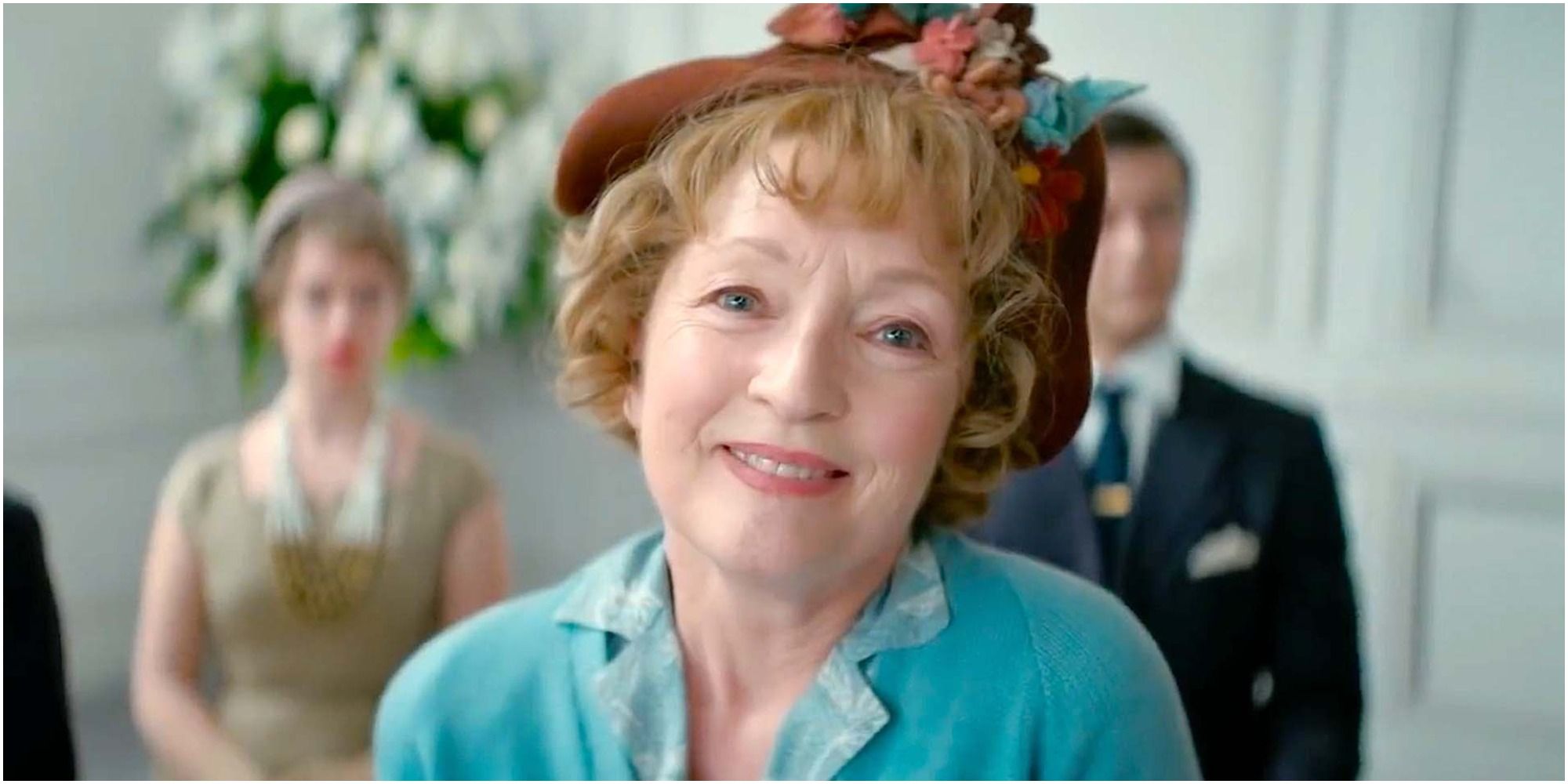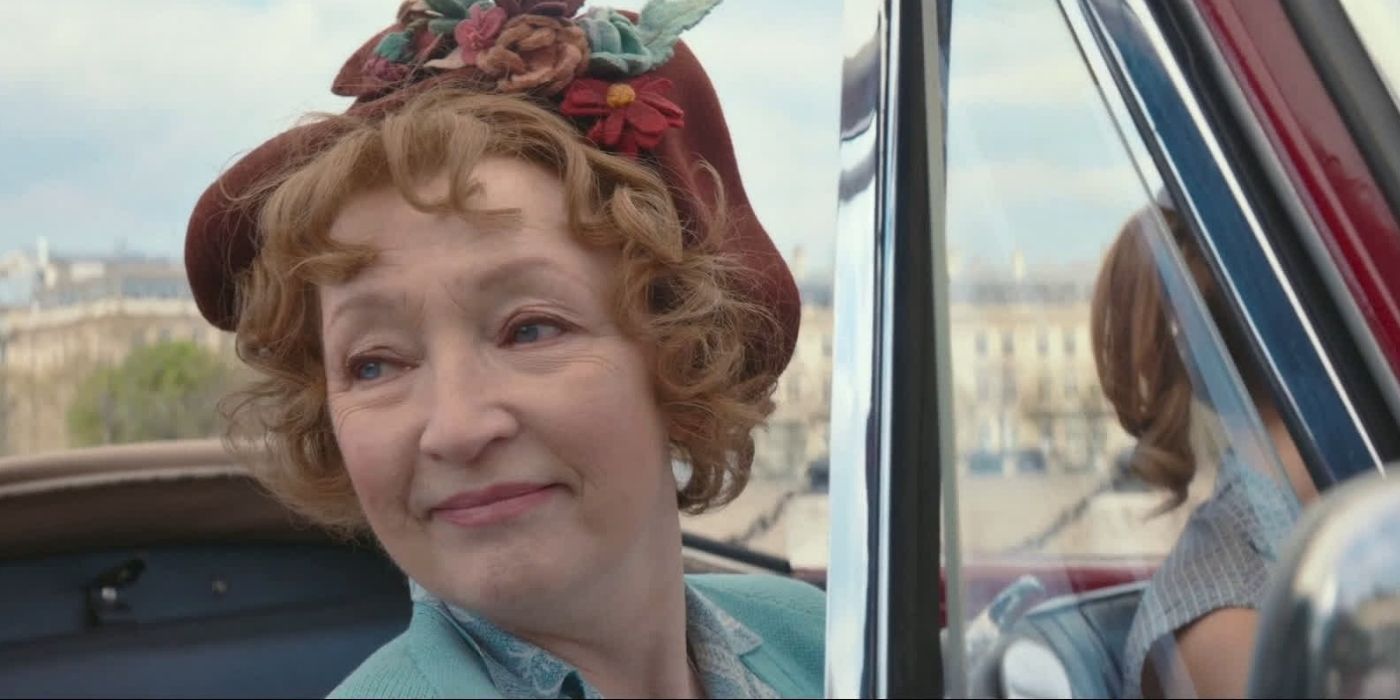There’s something to be said for truth in advertising. The title of Mrs. Harris Goes to Paris promises that the eponymous London cleaning lady, played by Lesley Manville, will travel to the City of Lights; and wouldn’t you know it, that’s exactly what happens. It should come as no surprise that plucky Mrs. Harris finds friendship, excitement, and the gown of her dreams along the way — it’s not like she was going to walk into the plot of Nocturama — but in this case these feel-good conventions are a virtue. In a time when movies sometimes seem like they’re trying to write think pieces about themselves, Mrs. Harris’ straightforward, uncomplicated nature stands out, and that’s part of the reason why it’s been so warmly received by critics.
But while Mrs. Harris is an easy movie to like, it’s harder to praise it without sounding condescending. It’s the kind of warm, light movie that attracts descriptors like “frothy,” “trifle,” or that old favorite, “escapist.” And to be sure, there’s absolutely an element of escapism at play here. Mrs. Harris herself escapes her lonely, work-a-day life in London for the chic beauty of Paris, and audiences will no doubt savor every second they spend in the heyday of haute couture (even if a worker’s strike means there’s a bunch of garbage all over the place). Still, Mrs. Harris Goes to Paris is more substantial than the average giddy sightseeing tour. It embraces the fantasy, stretching suspension of disbelief like crêpe batter without ever letting it break; along the way, it reaches something like transcendence.
It’s worth looking at what this movie could have been, if the creators weren’t careful and weren’t willing to go the extra mile for talent like Manville and Isabelle Huppert. Mrs. Harris could have ignored the melancholy undercurrent of Paul Gallico’s source novel: Ada Harris’ palpable loneliness after the death of her husband in World War II, as well as the scrounging and saving and hard work she had to do in order to afford her trip to Paris (to say nothing of that Dior dress.) It could have just been a frivolous celebration of frocks and champagne, another piece of ooh-la-la Gallic kitsch — in other words, Emily in Paris for the Best Exotic Marigold Hotel set.
However, while Mrs. Harris indulges in Parisian glamour, as well as the subsequent culture clash with blithe, unpretentious Ada (she introduces her new friends to a dish called “toad in the hole”), the French setting is ultimately just the icing on the cake — or the eclair, as the case may be. Ada’s quest for a Dior gown does provide some class commentary, raising the question of why some people are seen as inherently more worthy of finery than others. But she could have gone to Switzerland for her very own cuckoo clock and the film’s primary pleasure would be fundamentally unchanged. The important thing isn’t what Mrs. Harris wants, but the fact that the audience badly wants her to get it, which she does, and much more besides.
On paper, Mrs. Harris appears to be dealing from a stacked deck. The character of Ada Harris is shown to be kind, generous, devoted, hard-working, honest, and effortlessly charming; in fact, one of her few flaws is that she is sometimes too generous. Upon arriving in France, she charms her way into a Dior fashion show, helps modernize the company, and becomes a working-class hero to the company’s team of young seamstresses. Another week in Paris, and she might’ve won the Nobel Peace Prize.
In addition, fate seems to be as enamored with Mrs. Harris as everyone else, providing lucky break after lucky break. She wins big on a sports bet, and after losing another ends up receiving three different windfalls at once. When she doesn’t have a place to stay in Paris, Dior’s accountant (Lucas Bravo) is more than willing to play host. The lone Harris holdout, snooty Dior director Claudine Colbert (Huppert), happens to have a husband who was badly injured during World War II, allowing Mrs. Harris, a war widow, to sympathize with her. The list goes on.
And yet, none of this is a bad thing; on the contrary, it’s a major reason why Mrs. Harris feels so uniquely enriching. Lesley Manville, in fine form as always, plays Ada with winning optimism, but she also plays her as someone who has long ago accepted that good things happen to other people. She’s a working-class woman in a country with an infamously rigid class system. Her husband has been dead for years, which she only recently received closure for. She cleans the houses of condescending, exploitative clients, who alternately nag her for clothing advice or ignore her while they talk on the phone. She appears to have only two close friends, fellow cleaner Vi (Ellen Thomas) and pub owner Archie (Jason Isaacs). She’s someone who prides herself on making the best of a bad situation, because she’s had nothing but bad situations. When her luck turns around, Manville captures Ada’s awestruck disbelief, as when she wins her first bet; when her luck seems to go sour, she’s resigned and gloomy. Of course this would happen.
Ada’s quest for a dress does not come about by accident. It involves a lot of luck, certainly, but it also involves planning, scrupulous budgeting, and lots of hard work: dusting tables, mending skirts, networking. It’s the kind of work she’s been doing for decades without reward, which makes it so wonderful when she finally wears the dress — and so heartbreaking when the dress is scorched by the careless young actress (Rose Williams) Mrs. Harris lends it to. But right when it seems like the movie will end on a mournful note, a delivery arrives: thanks to the friends she made at Dior (not to mention the seizure of assets from a crooked waste manager), her kindness is richly rewarded, and Ada stands tall and proud once again.
That heartwarming scene, where Mrs. Harris’ hard work and gentle soul pays off, is the true pleasure of the movie. It’s fun to watch Ada gallivant through Paris sipping wine and watching the can-can, but what makes it a truly lovely experience is the joy of seeing a good person hit the karmic jackpot. Even the contrivances of the plot take on a certain glow in this light: it feels like some higher power was watching good, sweet Ada and decided to give her everything she wanted. And who wouldn’t?




